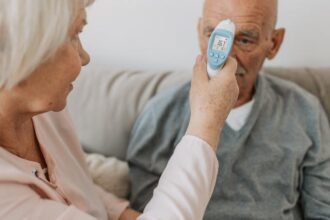Type 2 diabetes (T2D), a widespread chronic condition, stems from the body’s inadequate insulin production or utilization. This affliction touches the lives of hundreds of millions globally, making effective disease management essential to sidestep severe long-term repercussions such as heart disease or the necessity for limb amputation. Individuals afflicted with T2D must thoroughly understand how to manage their condition daily.
In Portugal, a group of researchers embarked on a study to ascertain the level of crucial knowledge among T2D patients, whether they were receiving insulin treatment or not. Their research, disseminated in the journal Frontiers in Public Health, aimed to diminish the knowledge disparity among diabetic patients concerning their illness, according to Prof Pedro Lopes Ferreira, the study’s lead author and the director of the University of Coimbra’s Center for Health Studies and Research. Prof Ferreira highlighted the study’s intent to enhance diabetic patients’ understanding of their condition.
The investigation revealed a wide disparity in patients’ knowledge about diabetes. Utilizing a specially designed test for individuals with type 1 or type 2 diabetes, the researchers evaluated knowledge across various domains, including nutrition, symptom recognition, and medication management. The study involved 1,200 people living with diabetes, nearly 40% of whom were undergoing insulin therapy. The remainder of the participants followed specific dietary plans, with some taking non-insulin oral diabetic medications or relying solely on nutritional adjustments.
Findings indicated a substantial portion of participants (71.3%) accurately answered questions related to nutrition, and a vast majority were aware of the benefits of physical activity. Furthermore, over three-quarters of the respondents knew the optimal method for blood sugar testing.
However, the study identified significant knowledge gaps in critical areas. For instance, only a tiny fraction of participants correctly identified foods to avoid for managing low blood sugar levels, and even fewer could correctly identify symptoms of ketoacidosis, a dangerous late-stage complication of T2D.
Prof Lopes Ferreira pointed to the behaviour of health professionals and the focus areas when educating patients as potential causes for this knowledge disparity. The study also found that medication use influenced T2D knowledge, with insulin users showing slightly better knowledge. Socio-demographic factors such as age, education level, living situation, and diet adherence also influenced the variability of disease understanding.
The research underscores the urgent need to improve T2D knowledge, particularly in blood sugar monitoring, to prevent dangerous fluctuations. The study advocates for addressing these knowledge gaps. Further research with a more extensive participant base could provide deeper insights into the socioeconomic and clinical factors influencing disease understanding. Prof Lopes Ferreira hopes the findings will inspire a shift in how health professionals communicate with patients, emphasizing patient education over solely biological indicators of disease management.
More information: Pedro L. Ferreira et al, Knowledge about type 2 diabetes: its impact for future management, Frontiers in Public Health. DOI: 10.3389/fpubh.2024.1328001
Journal information: Frontiers in Public Health Provided by Frontiers








